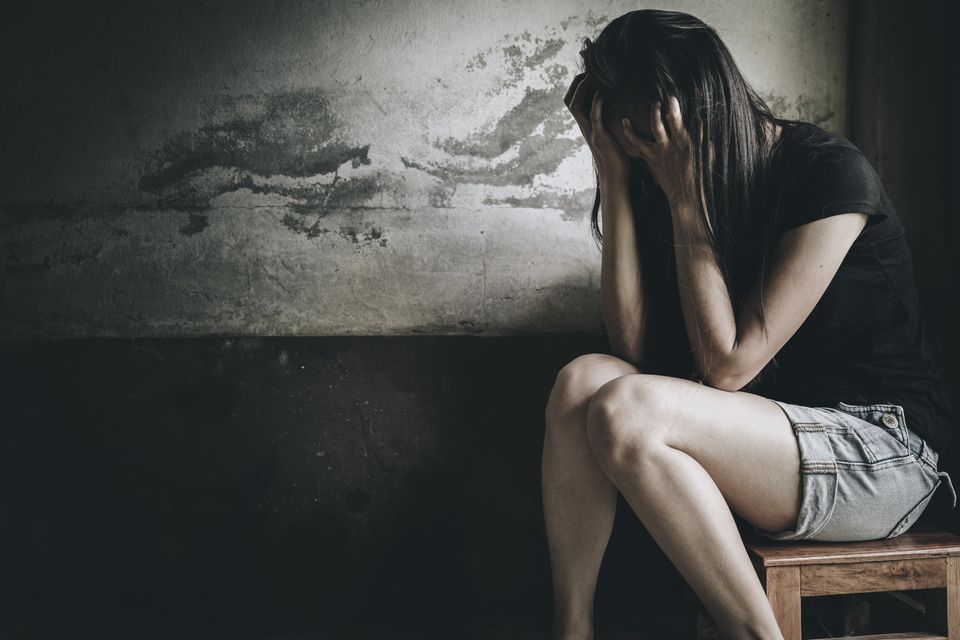Words of a Rebel
Peter Kropotkin
Chapter 5: Political Rights
Each day, in a whole range of tones, the bourgeois press praises the value and the importance of our political liberties, of the "political rights of the citizen": universal suffrage, free elections, freedom of the press and of meeting, etc.
"Since you have these freedoms," they say to us, "what is the point of rebelling? Don't the liberties you already possess assure the possibilities of all the reforms that may be necessary, without your needing to resort to the gun?" So, let us analyze, from our point of view, what these famous "political liberties" are worth to the class that owns nothing, rules nobody, and has in fact very few rights and plenty of duties.
We are not asserting, as has sometimes been said, that political rights have no value to us. We know very well that since the days of serfdom and even since the last century, we have made a certain amount of progress; the man of the people is no longer the being deprived of all rights that he was in the past. The French peasant can no longer be flogged at the roadside, as he still is in Russia. In public places, outside his factory or workshop, the worker considers himself the equal of anyone, especially in the great cities. The French worker is no longer that being lacking in all human rights who in the past was treated by the aristocracy as a beast of burden. Thanks to the revolutions, thanks to the blood which the people shed, he has acquired certain personal rights whose value we have no desire to minimize.
But we know how to draw distinctions, and we assert that there are rights and rights. There are those that have a real value and those that do not, and whoever tries to confound them is only deceiving the people. Certain rights like, for example, the equality of the peasant and the squire in their personal relations, or the corporal inviolability of the person, have been won through great struggles, and are so dear to the people that they will rise up rather than allowing them to be violated. But there are others, like universal suffrage, freedom of the press, etc., towards which the people have always remained lukewarm, because the know perfectly well that these rights, which have served so well to defend the ruling bourgeoisie against the encroachments of royal power and of the aristocracy, are no more than an instrument in the hands of the dominant classes to maintain their power over the people. These rights are not even real political rights, since they provide no safeguard for the mass of the people; and if we still decorate them with that pompous title it is because our political language is no more than a jargon elaborated by the ruling classes for their own use and in their own interest.
What, in fact, is a political right if it is not an instrument to safeguard the independence, the dignity and the freedom of those who do not yet have the power to impose on others a respect for that right? What is its use, if it is not and instrument of liberation for those who need to be freed? The Gambetas, the Bismarcks, the Gladstones need neither the freedom of the press nor the freedom of meeting, because they can write what they want, can meet whomsoever they wish, and profess whatever ideas they please; they are already liberated. They are free. If there is any need together, it is surely to those who are not powerful enough to impose their will. Such in fact is the origin of all political rights.
But, looked at from this viewpoint, have the political rights we are talking of been created with an eye to those who alone need safeguards? Obviously not. Universal suffrage can sometimes and to a certain extent protect, without the need for a constant recourse to force in self-defense. It can serve to re-establish the equilibrium between two forces which struggle for power, without the rivals being forces to draw their swords on each other as they did in the past. But it can be no help if it is a matter of overthrowing or even limiting power, or of abolishing domination. Since it is such an excellent instrument for resolving in a peaceful manner any quarrels among the rulers, what use can it possibly be to the ruled?
Does not the history of universal suffrage tell us this? Whenever the bourgeoisie has feared that universal suffrage might become a weapon in the hands of the people that could be turned against the privileged, it has fought it stubbornly. But the day it was proved, in 1848, that universal suffrage held nothing to fear, and that one could rule the people with an iron rod by the use of universal suffrage, it was immediately accepted. Now the bourgeoisie itself has become its defender, because it understands that here is a weapon adapted to sustain its domination, but absolutely harmless as a threat to its privileges.
It is the same with freedom of the press. What, in the eyes of the bourgeoisie, has been the most conclusive argument in favor of freedom of the press? Its powerlessness. Yes, its powerlessness. M. de Girardin10 has written a whole book on this theme: the powerlessness of the press. "Formerly -- he says -- we burned witches because people had the stupidity to believe they were all-powerful; now people commit the same stupidity regarding the press, because they believe that it also is all-powerful. But it is nothing of the kind; it is as powerless as the witches of the middle ages. Hence, more persecutions of the press!" This is the contention that M. de Girardin offered in the past. And when the bourgeoisie discuss the freedom of the press among themselves, what arguments to they advance in its favour?
"Look at England, Switzerland and the United States," they say. "In all of them the press is free and yet capitalist exploitation is better established in them than in any other country; its reign is more secure among them than anywhere else." And they add, "What does it matter if dangerous doctrines are produced. Don't we have all the means of stifliling the voices of the journals that protect them without even a recourse to violence? And even if one day, at a time of agitation, the revolutionary press becomes a dangerous weapon, so what? On that day it will be time enough to destroy it with a single blow on the most convenient pretext."
As for the freedom of meeting, the same kind of reasoning holds. "Give complete freedom of meeting." Say the bourgeoisie. "It will do no harm to our privileges. What we have to fear are the secret societies, and public meetings are the best way of paralyzing them. But if, in a moment of excitement, public meeting should get out of hand, we would always have the means of suppressing them, since we hold the powers of government."
"The inviolability of the dwelling? Of Course! Write it into all the codes! Cry it from rooftops!" say the knowing ones among the bourgeoisie. "We don't want policemen coming to surprise us in our little nests." But we will institute a secret service to keep an eye on suspects; we will people the country with police spies, make lists of dangerous people, and watch them closely. And if we smell out one day that anything is afoot, then we must set to vigorously, make a jest of inviolability, arrest people in their beds, search and ransack their homes! But above all we must do this boldly and if anyone protests too loudly, we must lock them up as well, and say to the rest, 'What would you have us do, gentlemen? We must deal firmly with the situation!' And we shall be applauded."
"The privacy of correspondence? Say it everywhere, write and cry it out, that correspondence is inviolable. If the head of some village post office opens a letter out of curiosity, sack him at once and proclaim loudly that he is a monstrous criminal. Take good care that the little secrets we exchange with each other in our letters shall not be divulged. But if we get wind of some plot being hatched against our privileges, then let us not stand on ceremony; let us open everyone's letters, allocate a thousand clerks to the task if necessary, and if someone takes it on himself to protest, let us say frankly, as an English minister did recently to the applause of parliament. 'Yes, gentlemen, it is with a heavy heart and the deepest of distaste that we order letters to be opened, but it is entirely because the country (i.e. the aristocracy and the bourgeoisie) is in danger."
This is what these so-called liberties can be reduced to. Freedom of press and of meeting, inviolability of home and all the rest, are only respected if the people do not make use of them against the privileged classes. But the day the people begin to take advantage of them to undermine those privileges, the so-called liberties will be cast overboard.
This is quite natural. Humanity retains only the rights it has won by hard struggle and is ready to defend at every moment, with arms in hand.
If men and women are not whipped in the streets of Paris, as they are in Odessa, it is because on the day a government dared to attempt this people would tear its agents to pieces. If an aristocrat can no longer make way for himself through the streets with the help of blows delivered right and left by the staves of his servants, it is because any of the servants who got such ideas into their heads would immediately be overpowered. If a degree of equality exists between the worker and his employer, at least in the streets and in public establishments, it is not because the worker's rights are written into the law but because, thanks to revolutions in the past, he has a feeling of personal dignity that will not let him endure an offense from anyone.
Yet it is evident that in present-day society, divided as it is between masters and serfs, true liberty cannot exist; it will not exist so long as there are exploiters and slaves, governments and governed. At the same time it does not follow that, as we await the day when the anarchist revolution will sweep away all social distinctions, we wish to see the press muzzled, as in Germany, the right of meeting annulled as in Russia, or the inviolability of the person reduced as it is in Turkey. Slaves of capital that we all are, we want to be able to write and publish whatever seems right to us, we want to be able to meet and organize as we please, precisely so that we can shake off the yoke of capital.
But it is high time we understood that we must not demand these rights through constitutional laws. We cannot go in search of our natural rights by way of a law, a scrap of paper that could be torn up at the least whim of the rulers. For it is only by transforming ourselves into a force, capable of imposing our will, that we shall succeed in making our rights respected.
Do you want to have freedom to speak and write whatever seems right to you? Do you want to have the liberty to meet and organize? It is not from a parliament that we seekers of freedom should ask permission, nor must we beg a law from the Senate. We must become an organized force, capable of showing our teeth every time anyone sets about restraining our rights of speech and meeting; we must be strong, and then we may be sure that nobody will dare dispute our right to speak, to write, to print what we write, and meet together. The day we have been able to establish enough agreement among the exploited for them to come out in their millions in the streets and take up the defense of our rights, nobody will dare to dispute those rights, nor any others that we choose to demand. Then, and only then, shall we have truly gained such rights, for which we might plead to parliament for decades in vain. Then those rights will be guaranteed to us in a far more certain way than if they were merely written down on a bit of paper.
Freedoms are not given, they are taken.
10 Emile de Girardin (1806-1881), an active journalist in Paris from the 1848 Revolution down to the Third Republic; he almost single-handedly invented the cheap popular press in France with his La Presse, as early as 1836; he was a clever feuilletonist, and the Vicar of Bray of French journalism, supporting all the timely adventurers at the right time.







 BBC
BBC





